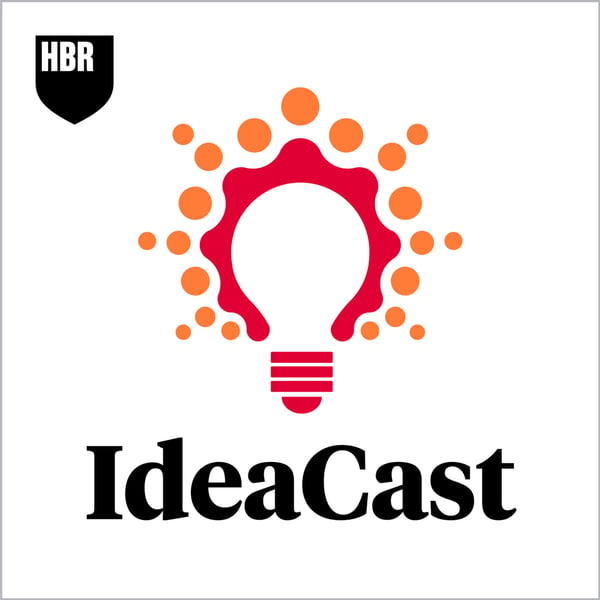How Women (and Everyone) Can Form Deeper Bonds to Fight Bias at Work
HBR IdeaCast
Harvard Business Review
4.4 • 1.9K Ratings
🗓️ 1 November 2022
⏱️ 29 minutes
🧾️ Download transcript
Summary
Transcript
Click on a timestamp to play from that location
| 0:00.0 | So you got the job. Now what? Join me, Eleni Mata, on HBR's new original podcast, New |
| 0:08.1 | Here, the Young Professionals Guide to Work, and how to make it work for you. Listen for |
| 0:13.8 | free wherever you get your podcasts. Just search New Here. See you there! |
| 0:30.0 | Welcome to the HBR IDA cast from Harvard Business Review. I'm Kurt Nickish. |
| 0:48.3 | It's an issue that's received time, attention, and money, but there haven't always been results |
| 0:54.4 | to show for it. We're talking about the share of women and women of color in leadership |
| 0:59.1 | ranks in business. Even today, women make up just around 6% of chief executives of the top |
| 1:05.6 | 3,000 companies in the United States. This year there are six black CEOs of Fortune 500 |
| 1:12.0 | companies, a record high, two of whom are women. Today's guest offers one way to improve that |
| 1:20.0 | by forming true alliances at work that transcend differences. Tina Opie is a management professor |
| 1:26.1 | at Babson College and a co-author, along with Beth Livingston of Tippie College of Business at the |
| 1:31.8 | University of Iowa, of shared sisterhood, how to take collective action for racial and gender |
| 1:37.8 | equity at work. And she's here to talk about real ways to approach difficult conversations |
| 1:43.2 | and to be true change makers at work. Welcome Tina. Thank you so much for having me Kurt. |
| 1:56.0 | Can I maybe have you briefly start by telling us about that title? What do you mean by shared |
| 2:01.5 | sisterhood? So I have sisters. I have some really close friends. We're very similar. We've known |
| 2:08.8 | each other for decades, and I say that we have a sisterhood with them. Then I met some people, |
| 2:14.6 | for example, my co-author, Beth Livingston. And the term shared in front of sisterhood |
| 2:22.1 | connotes that this is something that we have worked at. We might not be similar, but we have managed |
| 2:28.1 | to connect each other so that we now share sisterhood. We like to say that it's a radically |
| 2:34.2 | optimistic philosophy on how to achieve equity at work. And so that feels good. It feels very |
| 2:40.3 | hopeful, very inspirational. And when you manage to traverse the many landmines and schisms that |
... |
Please login to see the full transcript.
Disclaimer: The podcast and artwork embedded on this page are from Harvard Business Review, and are the property of its owner and not affiliated with or endorsed by Tapesearch.
Generated transcripts are the property of Harvard Business Review and are distributed freely under the Fair Use doctrine. Transcripts generated by Tapesearch are not guaranteed to be accurate.
Copyright © Tapesearch 2025.

